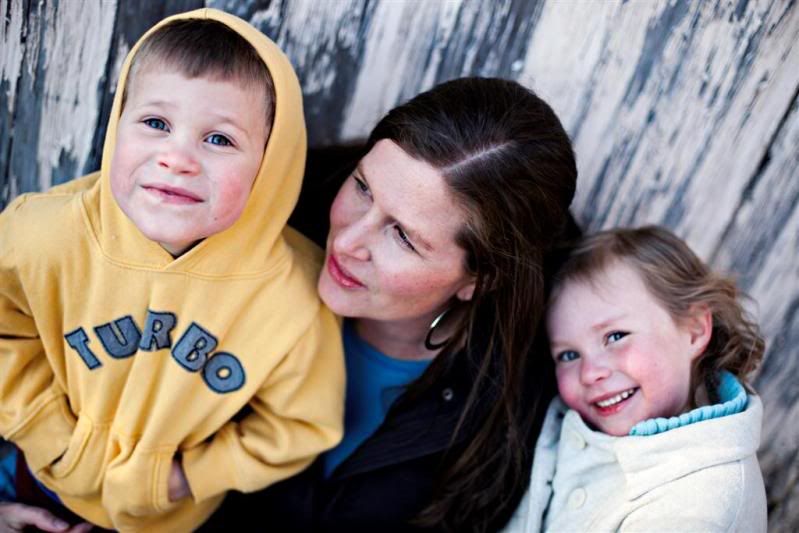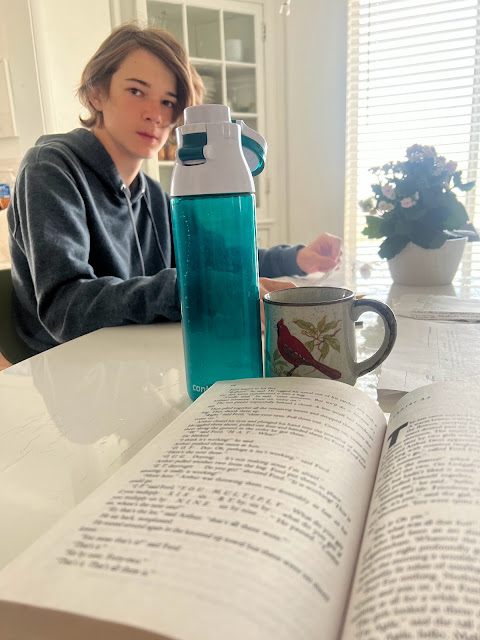Janna Dean, Healthy Body Image for our Children
For several years (and many different scale weights) I've been seeking to heal myself of body image discrepancies. I have found a higher source in my friend and neighbor Janna Dean. Her thoughts are radically different from Yahoo's Front Page news sources on Losing Weight and Being Healthy. But in listening to her ideas I have come a long way. Janna will be writing monthly posts for me this year, we hope to help others who might have the same challenges. Enjoy! -C. Jane

Here's something to think about as well:
"You can't control or dictate the quantity of food your child eats, and you shouldn't try. You also can't control or dictate the kind of body your child develops, and you shouldn't try. What you can do, and it is a great deal, is set things up for your child so she, herself, can regulate her food intake as well as possible, and so she can develop a healthy body that is constitutionally right for her." Child of Mine: Feeding with Love and Good Sense by Ellyn Satter
Janna Dean LCSW is a practicing therapist specializing in treating eating disorders and other addictions. She is the mother of two four-year-olds, loves camping and making cookies for her neighbors. Her neighbors really appreciate it. Cause they are good cookies.

Since the last post showing the dieting battle many of us feel trapped in (when diets don’t even work) I have considered several possible topics for today. There are so many important, interrelated facets to this issue. . . Do I talk about the obesity scare? Do I write about the destructiveness of our media? Or how weight and food have become, strangely, not just about nutrition and health, but about one’s morality? Or perhaps I should discuss the fat prejudice among our culture? And then I knew.
This week I sat in a conference listening to a presentation about body image that revealed one of the most horrifying statistics I’ve heard on the subject. The presenter stated that “14% of 5-year-old girls diet.” I was stunned. I am stunned. I know our culture is unrealistic in its expectations—impossible even. I know we have an “obesity epidemic” on our hands. I know we have serious distortions about what it means to be healthy. . . . But dieting at 5 years old?!
For a long moment I was unable to focus on the presentation and instead thought of my own wonderful, brave, mischievous, innocent little 4-year-old daughter (turning 5 this April). I felt saddened by the world she is exposed to despite my attempts to shelter her. And then my thoughts turned to her twin brother who is similarly victimized by our world (as is his 17-year-old cousin who has indeed lost himself and his dreams to the world of body building and supplements).
5-year-olds are not afraid of being “fat” because of health concerns; they are afraid of being fat because they have already learned that this word is not only a description of one’s body but one’s character and worth. This is not something they intuitively believe—they learn it through observation of the media, peers, and adults who are supposed to protect them.
Take for instance the research that shows children (and adults) would rather lose an arm than be fat. And studies that show young girls are more afraid of being fat than they are of nuclear war, cancer, or losing both parents. These children are growing up to become young women who would rather be run over by a truck than be extremely fat and who are reporting they would rather be mean or stupid than fat.
42% of American 1st to 3rd grade girls surveyed want to be thinner than they are. (6 to 8 years old!) And one half of 9 to 10-year-old girls feel better about themselves if they are on a diet.
50% of 9-year-old girls diet.
80% of 10-year-old girls diet.
90% of high school girls diet regularly—while only 20% of them have BMI’s that might be viewed as concerning.
These are not girls who “need” to diet—remember, diets don’t even work. These are kids who have learned to be so afraid of being fat that being a normal or average weight isn’t even acceptable anymore. We wonder how this has happened to our children but fail to recognize we expect the same impossible standards for ourselves.
We have become so lost in the body-obsessed world that we are now leading our children down the same path of discouragement, depression, and self-loathing we are following while teaching them it is the way to happiness and love! We are so lost that we don’t recognize what is wrong with measuring our worth by the wrong scale. We don’t recognize how we make continual moral judgments about others based on their body shape. We don’t recognize the destructiveness of the messages we send when we have or pay for our children to have breast implants, tummy tucks, or plastic surgery. We fail to question the belief that we are worth more if we are smaller.
I understand that more Americans are obese than ever before. I understand that health risks are associated with obesity. But I do not believe continued emphasis on weight loss and dieting is the answer. There is a direct correlation between the amount of dieting one does and the amount of depression one experiences. Allowing disparaging remarks about your body or your children’s bodies is harmful. Children who are teased by peers are 36% more likely to consider suicide than their counterpart and children who are teased by peers and parents are 51% more likely to consider suicide.
Children are fed so full of this glamour and dieting propaganda that they need our help to sort through it.
I cannot nor should I keep my children in a bubble. I cannot keep them from the messages that bombard them. But I can teach them to think critically. I can arm them with truth. I can model self acceptance and I can create a safe haven—a place where they can talk and be heard, a place where they can question, scrutinize and still find acceptance.
You can too.
- Encourage balanced eating of all types of foods in moderation; encourage eating in response to body hunger.
- Get active as a family (not to lose weight but to use and enjoy your body—moderate exercise increases self-esteem and helps to lift depression).
- Speak up when you hear family members making comments about a person’s body shape or weight—don’t allow this kind of talk in your home (even from grandparents).
- Encourage and model critical thinking of messages we are exposed to.
- Do not dismiss comments from your children about their bodies. Allow them to talk about it; ask questions; have conversations. Simply telling someone they “look great” or “don’t need to lose weight” will not change how they feel about themselves. But it will encourage them to stop talking to you about it.
- Examine and if necessary, modify the appearance expectations you have about your own child.
- Work toward openly loving and accepting your own body. In doing this, you will give your children permission to do the same. On the other hand, if you refuse to accept your own body, your children will receive the message that they must look a certain way to be loveable.
Here's something to think about as well:
"You can't control or dictate the quantity of food your child eats, and you shouldn't try. You also can't control or dictate the kind of body your child develops, and you shouldn't try. What you can do, and it is a great deal, is set things up for your child so she, herself, can regulate her food intake as well as possible, and so she can develop a healthy body that is constitutionally right for her." Child of Mine: Feeding with Love and Good Sense by Ellyn Satter
Janna Dean LCSW is a practicing therapist specializing in treating eating disorders and other addictions. She is the mother of two four-year-olds, loves camping and making cookies for her neighbors. Her neighbors really appreciate it. Cause they are good cookies.

